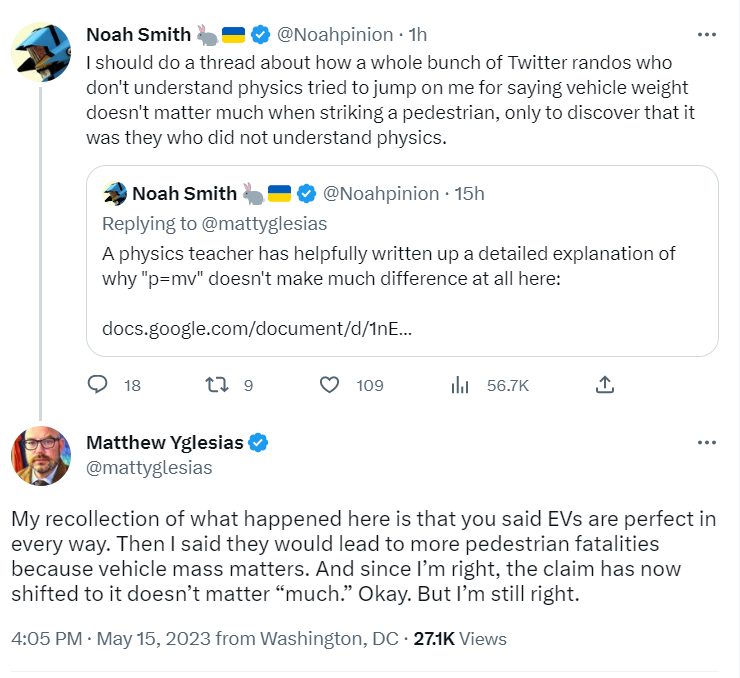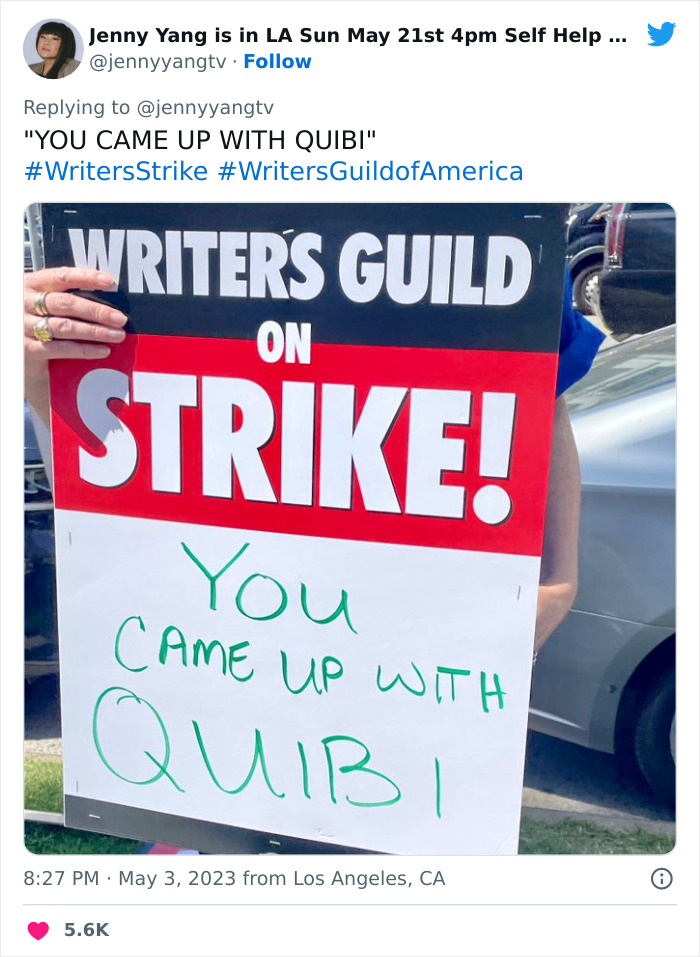He was just as devoid of political talent. His polling surge was never actually impressive and looked considerably worse when you dug into the numbers
Nonetheless, pretty much the entire political/journalistic establishment from the New York Times on down (with only a handful of exceptions) convinced themselves and tried to convince us that DeSantis had a virtual lock on the nomination. Political commentators, hard news reporters, data journalists, all found endless ways of telling us that everything was "good news for Florida Governor Ron DeSantis."
A few analysts came out of this with their dignities intact. Marshall kept his objectivity. Jamelle Bouie was one of the first to point out the lack of charisma. Michael Hiltzik did a good job debunking the "won the pandemic" meme.
For the vast majority of journalists, it was a summer of unbroken wishful analytics and herd mentality. They'd like to forget their predictions about Ron (and about Dobbs not being that big a deal and the Red Wave and the coming recession and Russia's lean and lethal fighting force and everything else they got wrong in 2022). Don't let them.
From TPM:
For the last two or three months we’ve had this on-going spectacle of
major media continuing to portray Florida Gov. Ron DeSantis as the
arch-rival and potential slayer of ex-President Trump, even after it’s
become increasingly clear he has really no chance at all of winning the
nomination. In fairness to DeSantis, it’s unlikely that anyone stands a
chance, unless the judicial system or mortality remove Trump from the
stage. But it’s only with DeSantis that you have the yawning gap between
perception and reality. Everyone knows Pence and Scott aren’t
happening.
Now we’re seeing the first signs of the Bigs catching on.
Tara Palmeri, consummate insider D.C. journalist now writing for Puck News, spent some time trying to cover DeSantis in New Hampshire
during his recent visit and found him awkward, incapable of the basic
blocking and tackling of retail politics, unable to sustain eye contact
and generally weird. You may have seen some of the cringeworthy videos
from his Florida jaunt. Palmeri sums it up like this: “It was my first
personal observation of what DeSantis’s critics mean when they call him
a paper tiger — a superficially perfect test-tube Republican candidate
who, on closer inspection, is probably not ready for prime-time.”
This is notable for two reasons. To date, most prestige reporters
questioning DeSantis’s candidacy have focused on the growing polling gap
between DeSantis and Trump, his unwillingness to attack Trump and his
inability to find his footing against Trump’s growing media presence and
mounting attacks. That’s looking at the campaign chess board and seeing
that the pieces aren’t arranged for a DeSantis win. Palmeri’s comments
are about seeing the guy in person and realizing he’s out of his league.
_______________________________
First off, the decision of the New York Times to even conduct a
presidential poll more than two years before the election is
irresponsible and bad for for democracy. It distracts from important
conversations and, since the data are largely worthless, its main
function is to introduce noise into the conventional wisdom.
But while the data are not worth wasting any time analyzing, the analysis in the NYT piece
by Michael C. Bender is worth talking about, and I don't mean that in a
good way. This represents a disturbing throwback to the wishful
analytics of the second half of 2015, showing that many data journalists
and the publications that employ them have learned nothing in the past
seven years.
Back in the early (and not so early) days of the
last Republican primary, 538, the Upshot, and pretty much everyone else
in the business were competing to see who could come up with the best
argument for why being consistently ahead in the polls was actually bad
news for Trump. These arguments, as we pointed out at the time, were laughably bad.
Just
as being ahead in the polls was not bad for Trump in 2015, the results
of this poll (to the extent that they have any meaning) are not bad for
Trump in 2022. When elections approach, parties tend to converge on
whoever has the clear plurality, and 49% is a big plurality,
particularly when a large part of it consists of people who are
personally loyal to Trump rather than to the GOP. On top of that, 53% of
self-identified Republicans had a "very favorable" opinion of the
former president and 27% were "somewhat favorable."
80% favorable is a good number.
Politically,
this is a time of tumult, and all predictions at this point are little
more than educated guesses, but given the losses and scandals Trump had
seen by the time this poll was taken, his support was remarkably solid,
which is the opposite of how Bender spun it.
And it gets worse
Here's the headline and the beginning of Bender's piece. [emphasis added.]
Half of G.O.P. Voters Ready to Leave Trump Behind, Poll Finds
Far from consolidating his support, the former president appears weakened in his party, especially with younger and college-educated Republicans. Gov. Ron DeSantis of Florida is the most popular alternative.
By focusing on political payback inside his party instead of tending to
wounds opened by his alarming attempts to cling to power after his 2020
defeat, Mr. Trump appears to have only deepened fault lines among
Republicans during his yearlong revenge tour. A clear majority of
primary voters under 35 years old, 64 percent, as well as 65 percent of
those with at least a college degree — a leading indicator of political
preferences inside the donor class — told pollsters they would vote
against Mr. Trump in a presidential primary.
Notice
the phrase "GOP voters." That 49% refers to the respondents who said
they thought they would vote in the Republican primary. Among that
group, those who identified as Republicans went for Trump over DeSantis
56% to 21%.
If we're talking about who is likely to be nominated
(which is, as mentioned before, an incredibly stupid and irresponsible
question to be asking more than a year before the election), people who
say they are going to vote in the primary are a reasonable group to
focus on, but they cannot be used interchangeably with Republicans,
which is exactly what Bender does.
While we're on the subject, this was a survey of 849 registered voters,
so when we limit ourselves to those who said they were going to vote in
the Republican primary then start slicing and dicing that, we are
building big conclusions on a foundation of very small numbers.
And it gets worse. [Emphasis added]
While about one-fourth of Republicans said they didn’t know
enough to have an opinion about Mr. DeSantis, he was well-liked by those
who did. Among those who voted for Mr. Trump in 2020, 44 percent said
they had a very favorable opinion of Mr. DeSantis — similar to the 46
percent who said the same about Mr. Trump.
Should Mr. DeSantis and
Mr. Trump face off in a primary, the poll suggested that support from
Fox News could prove crucial: Mr. Trump held a 62 percent to 26 percent
advantage over Mr. DeSantis among Fox News viewers, while the gap
between the two Floridians was 16 points closer among Republicans who
mainly receive their news from another source.
Here's a fun bit of context. Fox has been maxing out its support of DeSantis for years now.
Steve Contorno writing for the Tampa Bay Times
(from August of 2021):
The
details of this staged news event were captured in four months of
emails between Fox and DeSantis’ office, obtained by the Tampa Bay Times
through a records request. The correspondences, which totaled 1,250
pages, lay bare how DeSantis has wielded the country’s largest
conservative megaphone and show a striking effort by Fox to inflate the
Republican’s profile.
From the week of the 2020 election through
February [2021], the network asked DeSantis to appear on its airwaves
113 times, or nearly once a day. Sometimes, the requests came in bunches
— four, five, even six emails in a matter of hours from producers who
punctuated their overtures with flattery. (“The governor spoke
wonderfully at CPAC,” one producer wrote in March.)
There are few
surprises when DeSantis goes live with Fox. “Exclusive” events like
Jan. 22 are carefully crafted with guidance from DeSantis’ team. Topics,
talking points and even graphics are shared in advance.
Once, a Fox producer offered to let DeSantis pick the subject matter if he agreed to come on.
If
I were DeSantis's campaign manager, this poll would scare the shit out
of me. Fox has pushed him to a degree unprecedented for a politician at
that stage of his career. He has also gotten tremendous (and appallingly
credulous) coverage from the mainstream press, but he just doesn't
register. I know political scientists and data journalists don't like to
talk about things like personality, let alone charisma, but for
whatever reason, DeSantis has not made much of an impression.
It's
possible cataclysmic events (of which we're seeing a definite uptick)
will hand the Florida governor the nomination or maybe even the
presidency, but if this poll had any meaning, it would be bad new for
him and good news for Trump.
And it gets worse.
This
wasn't just an article based on worthless data sliced ridiculously thin
wishfully analyzed to get conclusions completely at odds with the actual
numbers; this was an influential and widely cited article based on worthless data sliced ridiculously thin wishfully
analyzed to get conclusions completely at odds with the actual numbers. It instantly became a fan favorite among political journalists.
The
article was published on July 12th and immediately became part of the
conventional wisdom. A little less than a month later, the FBI raided
Mar-a-Lago, and the "Republicans are moving on from Trump" voices
suddenly grew quieter, as even the highest ranking party members
responded with unhinged accusations and threats of retribution. Though
the pundits desperately wanted to believe otherwise, they had to
acknowledge that the GOP still belongs to Donald Trump.





